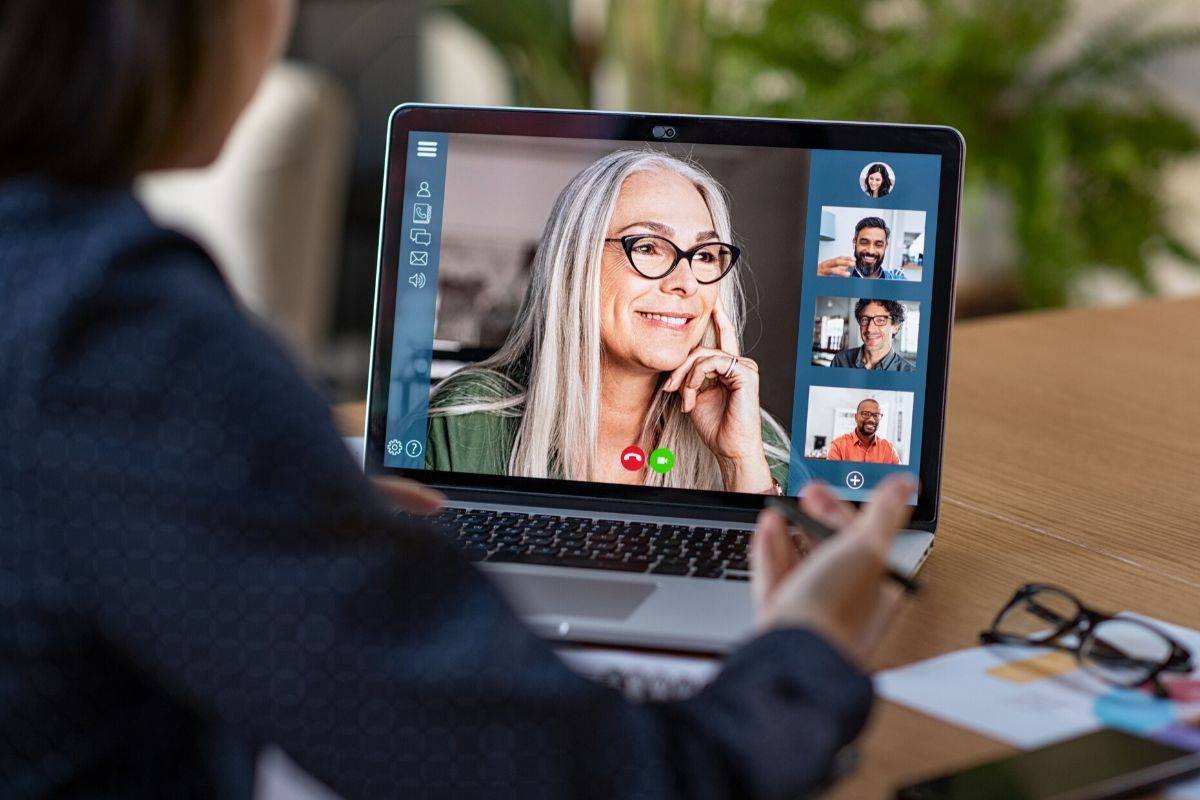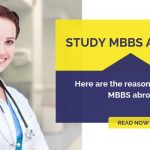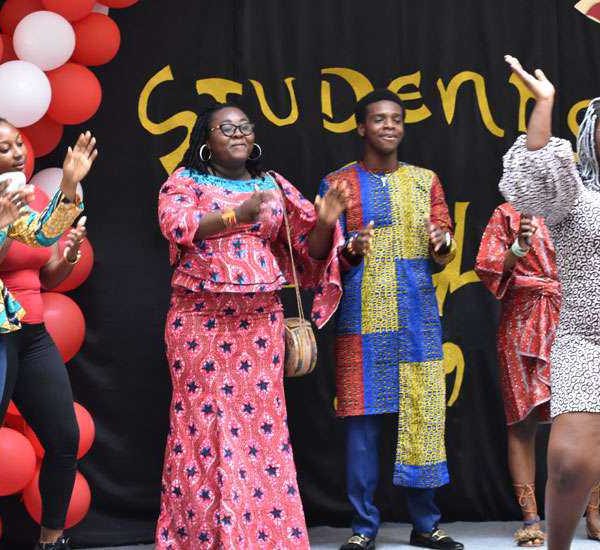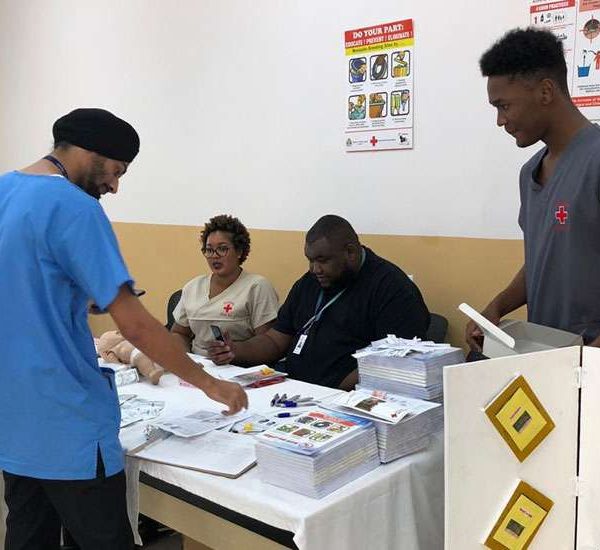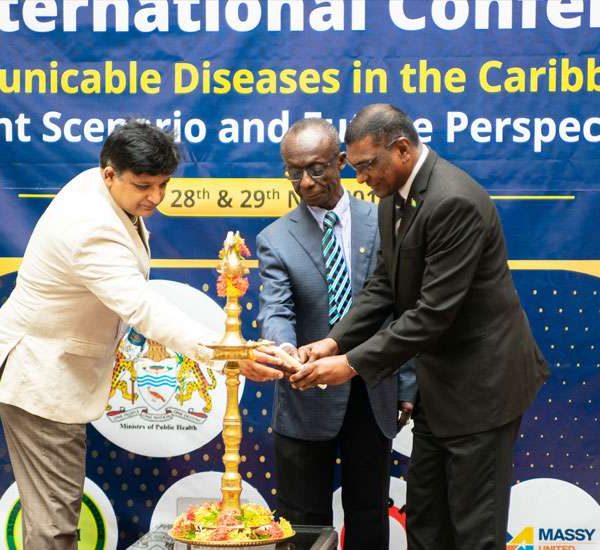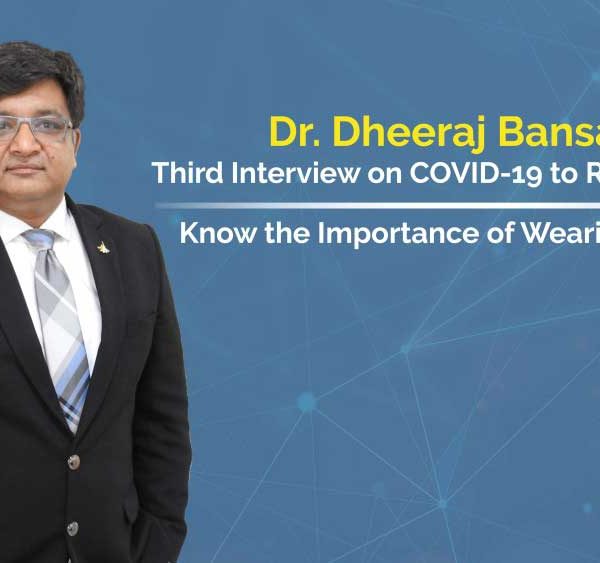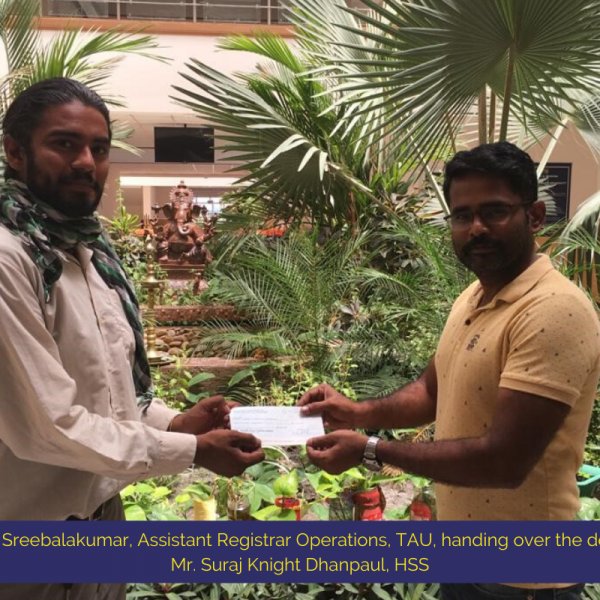On April 30, 2020, Texila American University (TAU or Texila) organized a panel discussion on education institutions preparedness of COVID-19 and the impact of online learning. The discussion organized in TAU’s virtual platform saw attendance from students, staff, and the faculty.
The event is part of the first of the multiple discussions planned by TAU’s COVID task force team.
Panelists:
- Mr. Syam Kumar, CEO
- Dr. Hugh Duckworth, CAO
- Dr. Jagan Nadipelly, Asst. Dean
Moderator:
- Dr. Dheeraj Bansal, Dean
The discussion started with Dr. Bansal, introducing the speakers, and welcoming the audience. He discussed the impact COVID-19 created on the education community in Guyana and the world.
Mr. Syam Kumar explained the measures adopted by Texila during the current emergency, which started by implementing social distancing measures and the installation of sanitizers all across the campus. A COVID task force was created, which took up the challenge of disseminating information relating to COVID-19 and measures to be adopted. The University voluntarily promoted lockdown around the middle of March on campus and the hostel area and disseminated masks and gloves to students, faculty, and staff. All the classes were converted to the virtual mode.
Panelists contributed by discussing measures adopted by Texila and some of the other institutions in the region. Dr. Duckworth also updated the group on guidelines from LCME on conducting clinical, didactic classes during the lockdown period.
Dr. Dheeraj (Moderator Comment)
Student Affairs and IT teams are available for students all the time to respond to the need of the students.
We need to accept and embrace the online teaching. Many schools in the Caribbean already planned for yearlong online teaching.
Remote Learning (Online Teaching) – Dr. Jagan
Dr. Jagan posted a question to students and staff that how pandemic altered the teaching and learning methods in medical education?
The following response has been received from the participants and panel members:
- In-person training and hands-on assessment through observations will be missed.
- People started enjoying online learning while the bigger population is yet to agree on online learning.
- American Medical Education webinar along with LCME: Online teaching will be the road for medical school teaching; clinical experience will change dramatically. No ruling out challenges such as examining patients and diagnosis.
Dr. Jagan agreed with the response of the participants and mentioned that there are anticipated post-pandemic transformative changes in medical education, especially with the integration of emergent technology. Moreover, the accreditation, assessment bodies, and medical schools may revisit their policies related to it after the pandemic.
Further, Dr. Jagan emphasized that clinical training for students of TAU College Medicine (COM) during pandemic finds difficult since the clinical training hospital sites are open for COVID patients. However, the current pedagogy of online teaching at TAU COM Basic Science is very effective since students and faculties of TAU COM have prior experience of inculcating technology into Medical Education teaching and assessment. There are no major challenges faced during the transmutation of live classes to online.
Following tools were used by faculty to teach Basic Science student during this period:
- CANVAS and Moodle LMS: Learning materials such as PPT, handouts, videos, and teaching schedules are made available for students.
- ERP: Students attendance was taken after every class
- Zoom: Subscribed for online teaching
Dr. Jagan pointed out that tirelessly, the university administration is working in collaboration with faculty on the welfare of the student to maximize this online platform.
Basic Science Student comments: Attention of the students during the classroom was one of the challenges, but most of the students appreciate the recording option to learn on their own time. Even though they are missing laboratory sessions, they expect to compensate when the school reopens.
The Dean responded to the student that the university team was working on the lab session to go live and recorded the session through the available medium effectively.
Dr. Hugh, CAO (Panel Member)
With the abrupt change to online classes, monitoring attendance is a concern for many faculty and students. Nevertheless, attendance is still a requirement for Basic Science classes. It is difficult to switch so abruptly to online classes and maintain highly accurate attendance records. We understand the potential technical and personal issues that may impact student attendance.
Dr. Bansal will address the adjustments that we have had to make for the Clinical Sciences curriculum in response to COVID-19. But I want to mention that we recently attended an American Medical Association webinar regarding how various US medical schools have adjusted their clinical science curricula. We were pleased to learn that many of the adjustments to the curriculum made by other medical schools are in line with what we have done here at TAU.
Clinical Comments by Dr. Dheeraj
We will move from the traditional mode of teaching such as grand rounds, ward rounds, and interactive with residence; all the above will be replaced with alternate options.
We started the didactic lectures for core rotations online, and students had been engaged with case studies and discussion.
More focus on didactic during a pandemic and clinical training will be emphasized post-pandemic.
Assessments are expected to change. Patient interaction, rounds, and history taking are expected to go online.
Full protective gear will be replacing the white coat, post-COVID. The simulation will play an important role, as mentioned by Dr. Jagan. More videos related to your topic will be updated accordingly.
Clinical Student: Ms. Pratiksha, a clinical student, requested advice for the remedial measures for the students in the last phase of rotation.
Dean commented that remedial options will be provided, and the days missed will be compensated.
Ms. Haritha suggested if physical examination videos can be recorded by students for evaluation while Dean suggested it will be conducted live instead.
The Current Situation in Guyana
COVID-19 measures are appreciated across the world, and Guyana is one of the safe places because of the population and measures taken by the authorities.
Some natural reasons, such as less apartment complex, less pollution, and distributed population, are a few reasons.
To keep ourselves safe, Deans suggested the following:
- Avoid going out of campus without essential reason
- Use mask
- Wash hands regularly
- Stay positive
- Exercise comfortably
- Eat healthy food
- Rest well
At the end of the discussion, the University contact number has been shared once again for students.
